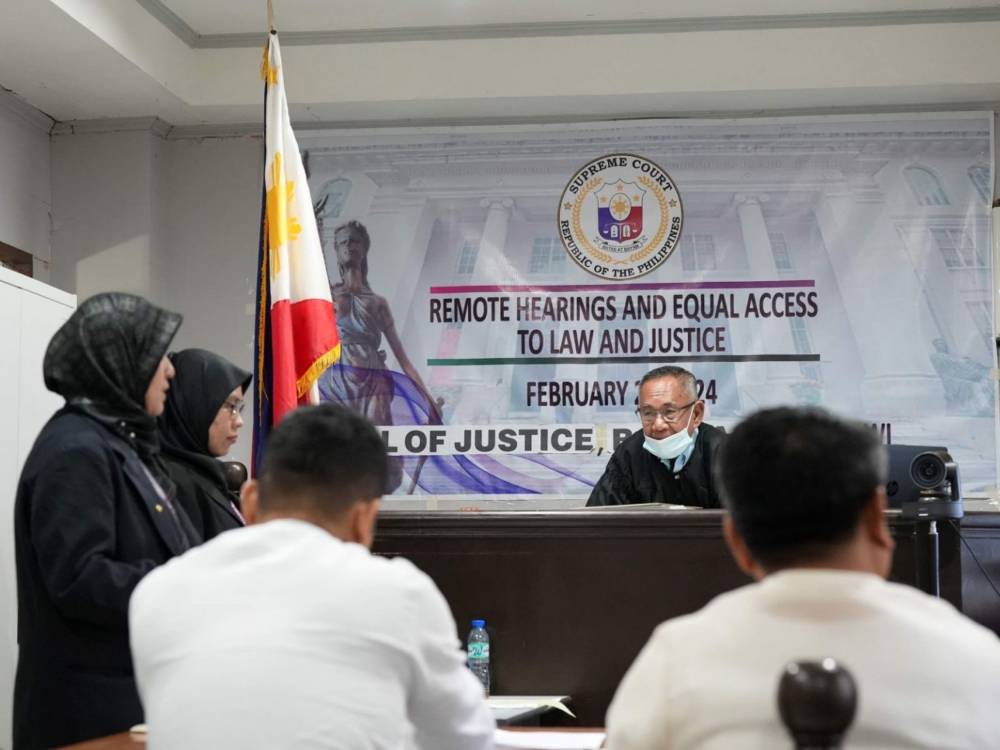‘REAL Justice’: SC revives mobile courts for remote areas

JUSTICE EVERYWHERE Executive Judge Abdulmoin Pakam of Regional Trial Court Branch 5 in Bongao, provincial capital of Tawi-Tawi, hears a petition for the cancellation of a marriage certificate. The proceeding held early this week is part of the Supreme Court’s program to spread the dispensation of justice all over the country. —PHOTOS BY THE SUPREME COURT PUBLIC INFORMATION OFFICE
In a milestone for the judiciary, Supreme Court Chief Justice Alexander Gesmundo came to Tawi-Tawi—marking the first time in decades that a sitting top magistrate set foot in the southern province—as part of efforts to ease access to the court system in remote areas.
During his visit, Gesmundo led the inauguration of the Remote Hearing and Equal Access to Law and Justice (REAL Justice) program, an offshoot of the Justice on Wheels (JOW) initiative launched in 2004.
According to Senior Associate Justice Marvic Leonen, one of several high court officials who accompanied Gesmundo, the REAL Justice program consists of three parts—starting with the deployment of retrofitted buses to the territorial jurisdiction of courts which are difficult to reach.
The second component is about providing alternative modes of transportation in order to bring technology to far-flung areas that could not be reached by buses.
‘Real-time’
The last component involves the use of the buses as mobile courts where bail procedures can be conducted on days when the court is not in session, “so that those who are arrested would be able to post bail when necessary,” the high court said.
The JOW program had similar services when it was relaunched in 2008 as “Enhanced Justice on Wheels,” offering mediation and other legal assistance to underprivileged litigants in remote areas.
That initiative led to the promulgation of cases that allowed the release of many persons deprived of liberty, the Supreme Court said.
READ: Dynamics of jurisprudence: When Supreme Court divisions issue conflicting decisions
Following JOW’s success and the development of more advanced technologies since then, the high court said it saw the need to further improve the delivery of legal services in remote areas.
READ: SC allows lower courts to conduct fully remote hearings via videoconference
Aside from Leonen, Associate Justices Jhosep Lopez, Japar Dimaampao, Jose Midas Marquez, and Antonio Kho Jr., and Court Administrator Raul Villanueva also joined Gesmundo.
Local support
The chief justice thanked Tawi-Tawi officials for their support in helping the judiciary deliver “real justice in real time” anywhere.
Gesmundo’s visit means the Supreme Court can be reached anywhere in the country, Leonen said, “even the farthest, southernmost province of this country and also any other part in our archipelago.”
This is a “moment to recommit ourselves to the cause of social justice, resolute in our mission to ensure that the principle of fairness and equality resonate[s] in every courtroom across our archipelago,” he added. INQ
